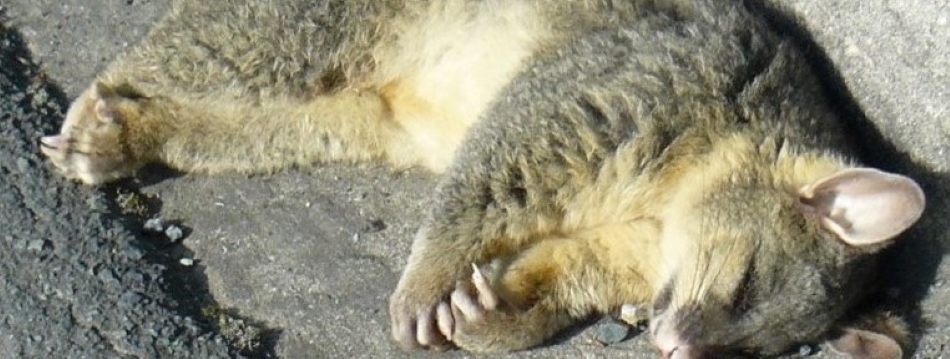It's a dirty job, but kiwis need to do it. Photographing a death scene may seem a bit gruesome, but recording the impacts of roads on wildlife is essential. From farm roads to multi-lane highways, thousands of New Zealand's animals are killed each year, but there are too few records of where it happens and which species are affected to understand the scale of the toll. Like many other countries that have partnered their roadkill databases with iNaturalist, together we can observe and record dead native and non-native species to better understand the affects roads have on New Zealand's precious ecosystems. This information can show which species are most at-risk, which areas are "red-zones" and "black spots" for high rates of roadkill, and over time, this data can show declines of native species or spread of new invasive species. Ultimately, this accumulated data - and your contributions - can be used to mitigate future mortality, identify areas for reduced speeds, construction of ...more ↓
It's a dirty job, but kiwis need to do it. Photographing a death scene may seem a bit gruesome, but recording the impacts of roads on wildlife is essential. From farm roads to multi-lane highways, thousands of New Zealand's animals are killed each year, but there are too few records of where it happens and which species are affected to understand the scale of the toll. Like many other countries that have partnered their roadkill databases with iNaturalist, together we can observe and record dead native and non-native species to better understand the affects roads have on New Zealand's precious ecosystems. This information can show which species are most at-risk, which areas are "red-zones" and "black spots" for high rates of roadkill, and over time, this data can show declines of native species or spread of new invasive species. Ultimately, this accumulated data - and your contributions - can be used to mitigate future mortality, identify areas for reduced speeds, construction of migration underpasses & protective barriers, and habitat restoration. To get the best data, you need to record your roadkill observation as detailed as possible:
1) Don't Become Roadkill: roadways are hazardous places, so make sure you stop in safe areas well off the road, and use caution and vigilance when entering any roadway. If the area is too dangerous, it's always better to lose a record than to lose your life.
2) Good Shots Matter: Try to get photographs that clearly show the animal. If you can determine the age or the sex, please record that too. If your specimen seems to be mangled beyond recognition, there are always a few visible characters that can still identify it. Even if you don't know what it may be, there are experts in the iNaturalist community that usually can figure out what it is. Always make sure to tag your observations with Roadkill New Zealand in the "Projects" field.
3) Record Your Data: a photograph or two of your subject is great, but additional data makes your observation much more valuable. Please describe the type of road (eg: asphalt/tarmac, gravel, mettle, dirt), if it is a private or public road, the number of lanes, the posted maximum speed, the type of adjacent habitat, the weather conditions, and whatever seems relevant at the time. Make sure you add that information to the "comments" section.
4) Have fun! As unpleasant as this may be, it is still an important way to collect scientific data and connect with nature. Roadkill New Zealand can be part of your next road trip or vacation, a nature outing with the kids, a classroom lesson plan and field project, or part of a birdwatching trip. You can record observations during your daily drive to work, or even make weekly roadkill surveys in your own area.
Remember the data you collect today will guide conservation decisions tomorrow!
Kia Ora
Douglas
less ↑




